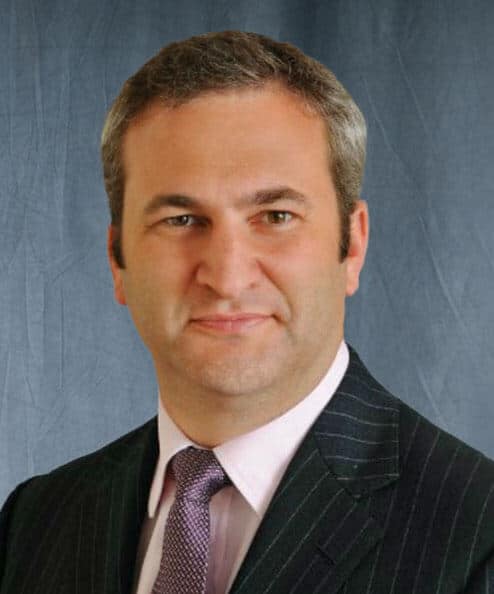Saudization - is the bubble about to burst?
February 3rd, 2015 – Riyadh, Saudi Arabia – The war for talent in Saudi Arabia is heating up as the Saudization program puts pressure on companies to increase the number of Saudi National employees and retain existing employees.
 With 58 industry sectors subject to the Saudization program that stipulates a minimum proportion of Saudi National employees in relation to expatriates, it can be a daunting task for employers to hire qualified Saudi Nationals – particularly as approximately 50 percent of the Saudi population are under the age of 25. This is in fact typical of the Gulf region where around 60 percent of the population is under the age of 30 years. It is of course important for these nations to provide employment for the younger generation and the measures in place are there for the right reasons.
With 58 industry sectors subject to the Saudization program that stipulates a minimum proportion of Saudi National employees in relation to expatriates, it can be a daunting task for employers to hire qualified Saudi Nationals – particularly as approximately 50 percent of the Saudi population are under the age of 25. This is in fact typical of the Gulf region where around 60 percent of the population is under the age of 30 years. It is of course important for these nations to provide employment for the younger generation and the measures in place are there for the right reasons.
The measures are making it more difficult to hire expatriates however, and in some instances this might be necessary. If the total number of Saudi employees comprises less than six percent of the total workforce, it is not possible for an employer to receive new visa allocations for expatriates at all. The ideal number set out in the Saudization program is a level above 40 percent of Saudi National employees.
The market is also witnessing companies learning to be more strategic in order to retain talent. The timing of a counter offer and the attraction of a significantly higher salary can sometimes leave little doubt in a candidate's mind to stay with their current employer.
There are a number of negative outcomes for both companies and employees who are continually offered increased salaries over and above the market rate. This is particularly prevalent for Saudi National employees due to high demand. For the employee who chooses to change companies every two years, the ability to increase skills and add real value to an organization will be severely impacted. In particular, for industries such as private equity the real rewards will only materialize over the longer term. For employers, it is unsustainable to continue increasing salaries without negatively impacting the P&L and creating internal conflicts. The right way to achieve the desired levels of retention is to ensure each staff member understands their opportunities within the firm and the importance of development over the longer term. Loyalty programs and bonus schemes can also be used to motivate retention.
Other measures can be taken to retain the best staff. Prevention is better than cure and providing a clear understanding of an employee’s career path together with the right level of training and development will help to decrease turnover. In order to continually upskill the promising junior Saudi employees, businesses should still look to place more experienced expatriate hires at a senior level to assist with the development of the Saudi teams. Training and development does not always need to be a technical or a team building exercise. Educating employees in regard to the longer-term benefits of remaining with a firm is also important. Ideally, this of course needs to be completed before an employee has already received an offer of employment from a competitor.
There seems to be a catch 22 situation in Saudi Arabia's job market. Businesses in the Kingdom need to grow and the younger generation of Saudis need to be employed and trained, but the question is - can both these objectives be met?
 Richard Foulkes is a Client Partner at Pedersen & Partners based in Dubai and has an active client portfolio within the Financial Services Practice and Industrial Practice Groups, focusing mainly on energy and natural resources. With over twelve years of executive search experience he has worked with major multinationals in the UK, Asia and Middle East to successfully complete senior management and executive level assignments across multiple industry sectors. Prior to joining Pedersen & Partners, Richard was the Financial Services Practice head in the Middle East with an international executive search firm based in Dubai. Before that he spent nine years working for an international recruitment firm in Tokyo where he held both consulting and management positions.
Richard Foulkes is a Client Partner at Pedersen & Partners based in Dubai and has an active client portfolio within the Financial Services Practice and Industrial Practice Groups, focusing mainly on energy and natural resources. With over twelve years of executive search experience he has worked with major multinationals in the UK, Asia and Middle East to successfully complete senior management and executive level assignments across multiple industry sectors. Prior to joining Pedersen & Partners, Richard was the Financial Services Practice head in the Middle East with an international executive search firm based in Dubai. Before that he spent nine years working for an international recruitment firm in Tokyo where he held both consulting and management positions.
Richard holds a Bachelor’s degree from Aston University, UK.
Pedersen & Partners is a leading international Executive Search firm. We operate 53 wholly owned offices in 50 countries across Europe, the Middle East, Africa, Asia & the Americas. Our values Trust, Relationship and Professionalism apply to our interaction with clients as well as executives. More information about Pedersen & Partners is available at www.pedersenandpartners.com
If you would like to conduct an interview with a representative of Pedersen & Partners or have other media-related requests, please contact: Mark Anderson, Marketing & Communications Manager at: mark.anderson@pedersenandpartners.com
